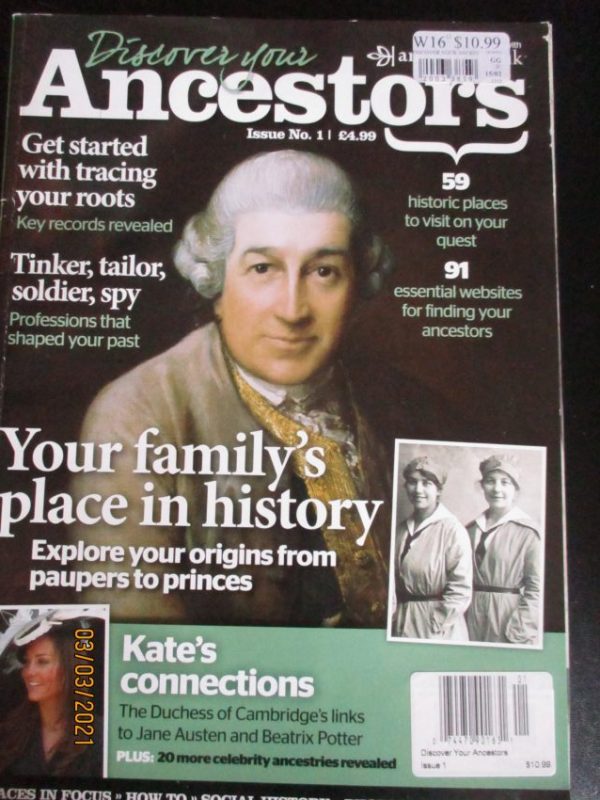
In pre Covid times, I used to try and get to as many Australasian genealogy conferences as I could in person. Catch up with friends, meet speakers and network with colleagues. Travel may have disappeared for a while but all is not lost.
One of the few benefits of Covid 19 is that it has turned the genealogy world more online than ever before. We can now attend virtual seminars and conferences without the added cost of a flight, accommodation, and other travel expenses.
Finding myself with an unexpected free weekend I signed up at the last minute to The Family History Show 2021 for about $10. This gave me access to six talks on a variety of UK topics with most referencing The Genealogist, a subscription database I have not really looked at before. Some Australian family history societies provide access to The Genealogist in their libraries or during Covid times behind a membership wall.
Two of the speakers I have had the pleasure of hearing in person before – Else Churchill and Mia Bennett. Both are excellent speakers and I always tend to learn something new and having them on the program was a bonus.
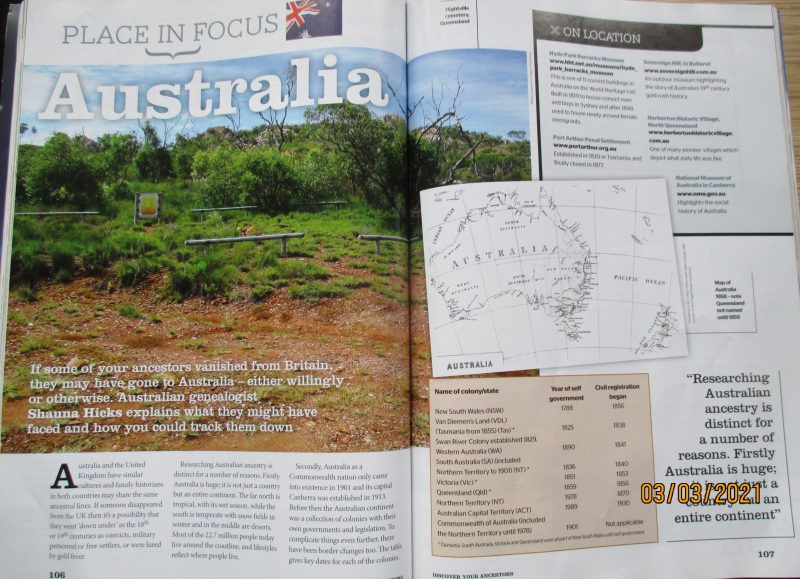
I should say that all the talks were recorded, but you only had 72 hours to watch. This was good as it meant I did not have to stay up all night! However I would have liked to be able to go back again now – not all of my hand written notes make sense sadly.
Breaking Down Brick Walls by Mark Bayley provided a lot of search tips on how best to keyword search in The Genealogist. He also got me interested in their Map Explorer which has a modern overlay. It also has unique data sets such as non-conformist records, Fleet marriages and non-parochial records. If you cannot find someone in the other big databases, it may be worth a quick look here. The Image Archive is another feature I want to explore more.
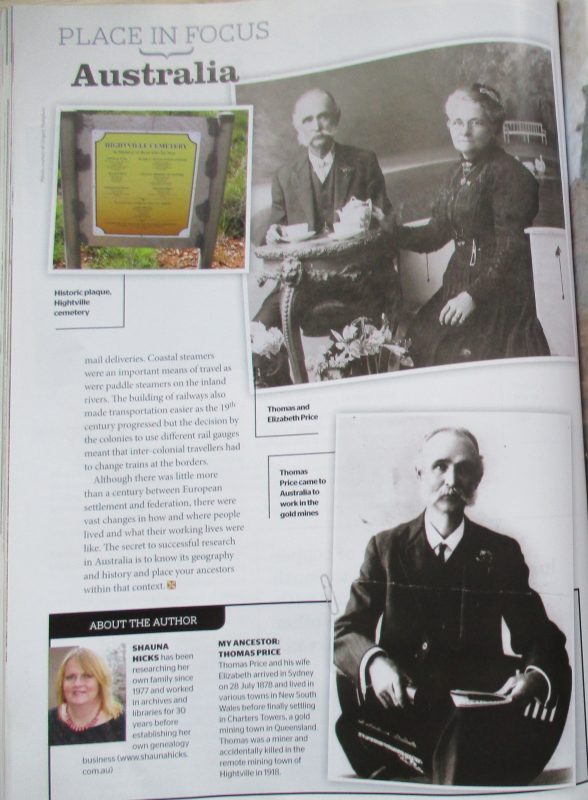
Else Churchill’s Country Bumpkins: tracing rural ancestors was wide ranging and a must for those with ‘ag labs’ in the family. She started with a series of definitions and the differences between agricultural labourers and farm servants for example. Examples from her own family history showed how you can fill out your ancestors’ stories, not just births, deaths, and marriages. Ian Waller’s My Ancestor was an Agricultural Labourer 2nd edition is a must read. Else always starts out slow but speeds up considerably towards the end as she tries to fit everything in.
Maps for Family Historians with Gill Blanchard made me realise I need to do more with maps. The range of different maps is staggering and surprisingly, there are a lot of digitised maps online for free. Some of the places to look are the British Library, National Library of Wales, National Archives UK, British History Online, National Library of Scotland, London Lives and Booth’s Poverty Maps to mention just a few. I was also interested about the tithe maps which are indexed by place, owners and occupiers which are indexed in The Genealogist. It did not take me long to find my White ancestors in Pitton & Farley in Wiltshire. That was a big thrill for me. I can see myself spending more time searching tithe maps.
Your Ancestors and Their Occupations by Dr Simon Wills was wide ranging, and he went through the usual suspects such as trade and postal directories. This was another talk where it would have been useful to have a handout of the major sources and URLs. Instead, I was left trying to keep up while writing notes at the same time. Luckily with virtual speakers you can hit pause.
Finally, no conference would be complete these days without at least one talk on DNA. Donna Rutherford talked on Making the Most of your DNA test. She covered a lot of ground and I suspect she may have left any beginners behind. Donna mentioned Gedmatch, clustering, and quick and dirty trees as workspaces for sorting matches. I think this talk would have been better recorded so that you could watch it again and again as you increased your knowledge of DNA and the various tools. No handout did not help either.
The whole program was great value for money, and I took up a discounted subscription offer to The Genealogist which included other items such as a subscription for the Discover Your Ancestors digital magazine. In the Family History Show goodie bag there was a download of all 2018 Discover Your Ancestors magazines which was an unexpected bonus.
On the downside, I would have liked to see handouts of URLs and the ability to watch again later. It was a lot of information to absorb in a single sitting even at home when you can get up for a cup of coffee.
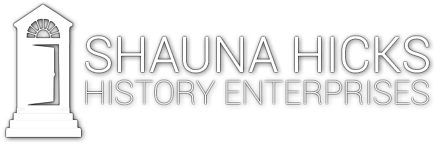
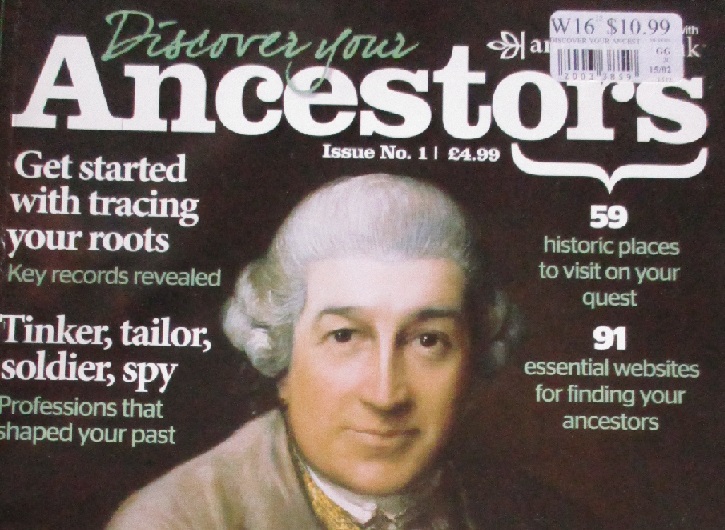
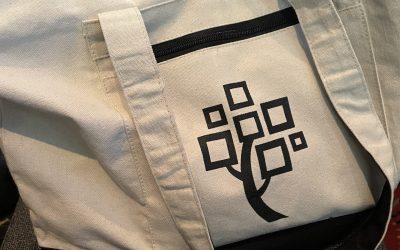
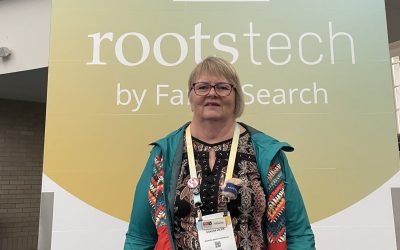
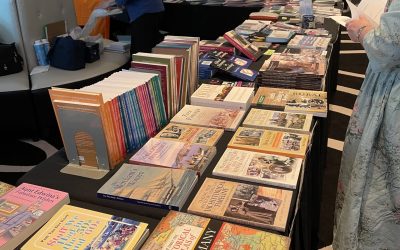
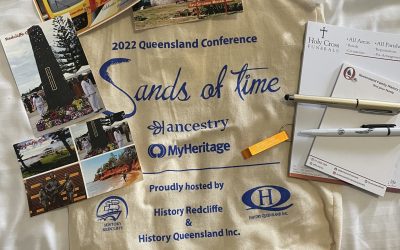
0 Comments